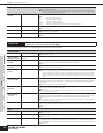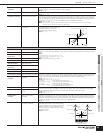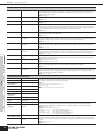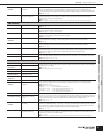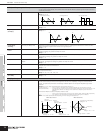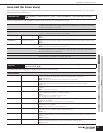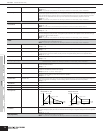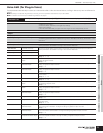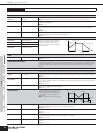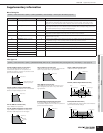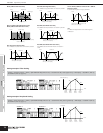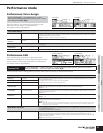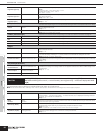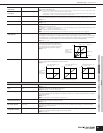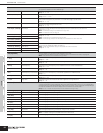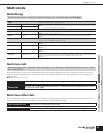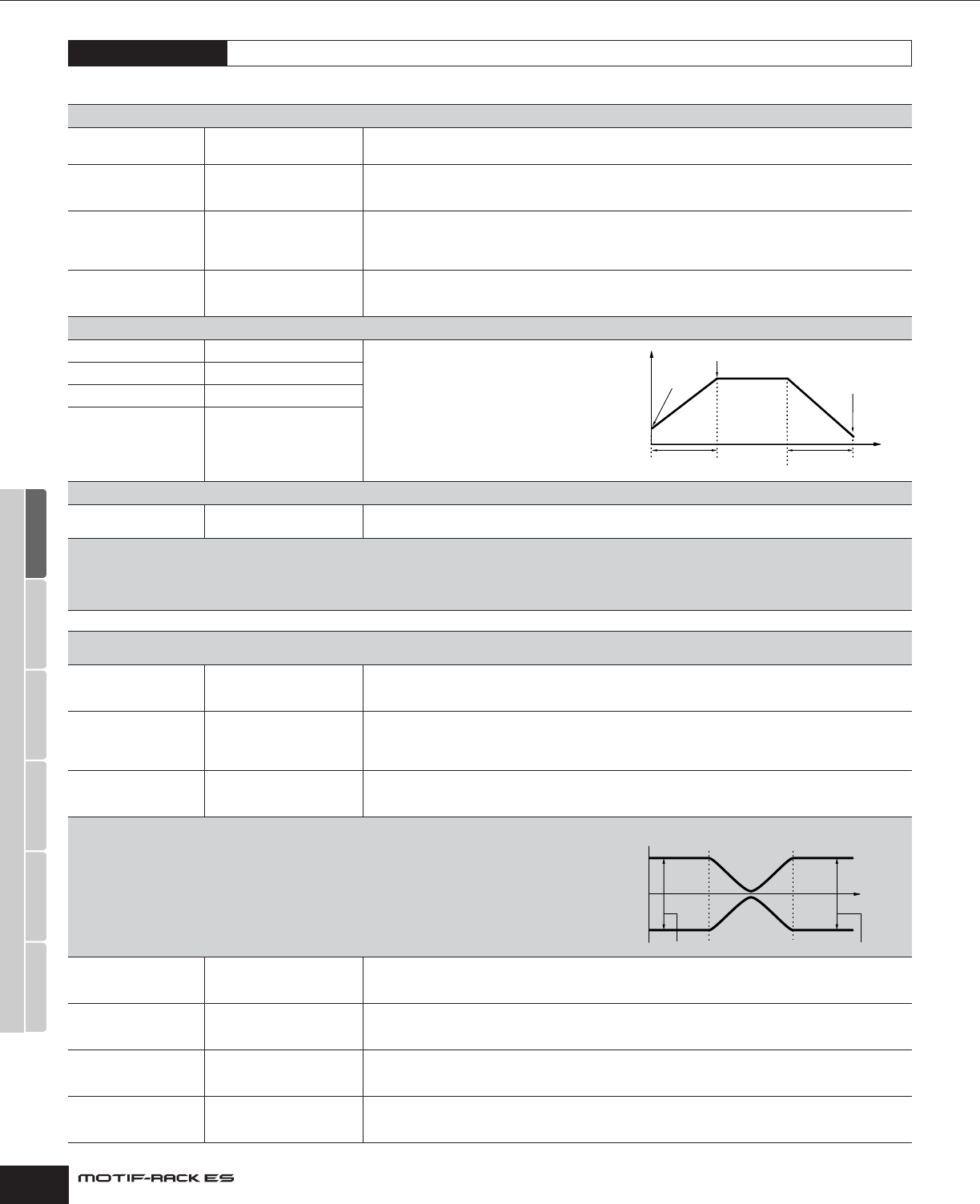
Owner’s Manual
Utility
Voice mode
Performance mode Multi mode Effect Arpeggio
Reference
Voice mode Voice Edit (for Plug-in Voice)
76
n Unlike with Normal Voices, the Plug-in Voices only have one Element for editing.
Element Edit
[VOICE] → select Plug-in Voice → [EDIT] → [1/5/9/13] → select each display with PAGE [E][F]
OSC (Oscillator)
Bank
Number
Bank
Number
First select the Board Voice Bank, then select the Board Voice Number.
Settings: These depend on the particular Plug-in Board; refer to the owner’s manual of the relevant Plug-in Board.
VelSensDpt
Velocity Sensitivity Depth Determines the velocity sensitivity of the Plug-in Voice. For higher values, the harder you play the note, the
louder the Voice becomes.
Settings: 0 ~ 127
VelSensOfst
Velocity Sensitivity Offset This lets you specify an offset value for Velocity Sensitivity Depth. In other words, you can increase the
relative velocity (or level) of the Voice by a set amount – so that all the notes you play have the added
velocity.
Settings: 0 ~ 127
NoteShift
Note Shift Determines the transpose setting for the Plug-in Voice, or the amount (in semitones) by which the pitch is
raised or lowered. You can set a value of up to 2 octaves.
Settings: -24 ~ 0 ~ +24
PEG (Pitch Envelope Generator)
AttackTime
PEG Attack Time Makes various time and level settings for
the Pitch EG. Using the PEG, you can
control the transition in pitch from the
moment the sound starts to the moment
the sound stops.
ReleaseTime
PEG Release Time
InitLvl
PEG Initial Level
ReleaseLvl
PEG Release Level
Filter
HPF Cutoff
HPF Cutoff Determines the Cutoff Frequency for the High Pass Filter.
Settings: -64 ~ 0 ~ +63
Native (Native Parameter)
With a Plug-in Board installed to the MOTIF-RACK ES, you can create a Board Voice by editing both native
parameters (those parameters exclusive to the particular board) and unique parameters (related specifically
to the MOTIF-RACK ES). The parameters will vary depending on the Plug-in Board. For details about each
parameter and its functions, refer to the owner’s manual or the on-line help that came with your Plug-in
Board.
LFO (Low Frequency Oscillator)
This display gives you a comprehensive set of controls over the LFO. The LFO can be used to create
vibrato, wah, tremolo and other special effects, by applying it to the pitch, filter and amplitude parameters.
Speed
LFO Speed Sets the speed of the LFO waveform. A positive setting will increase the speed and a negative setting will
reduce it.
Settings: -64 ~ 0 ~ +63
KeyOnDelay
LFO Key On Delay Determines the delay time between the moment that a Note On message is received and the moment the
LFO comes into effect. As shown in the illustration, a positive setting will lengthen the delay and a negative
setting will shorten it.
Settings: -64 ~ 0 ~ +63
PMod
LFO Pitch Modulation Depth Determines the amount by which the LFO waveform controls the pitch. A positive setting will increase the
amount and a negative value will decrease it.
Settings: -64 ~ 0 ~ +63
EQ (Equalizer)
From this display you can apply equalizer
settings to the Plug-in Voice. This is a
shelving equalizer with two bands; one for
high frequencies and the other for low
frequencies.
n For details about Equalizer, see page 60.
LowFreq
EQ Low Frequency Determines the shelving point for the low frequencies. The levels of signals below this frequency will be
boosted/attenuated by the amount set in the “LowGain” parameter.
Settings: 32Hz ~ 2.0kHz
LowGain
EQ Low Gain Sets the amount by which the frequencies below the “LowFreq” parameter setting are attenuated or
boosted.
Settings: -64 ~ 0 ~ +63
HighFreq
EQ High Frequency Determines the shelving point for the high frequencies. The levels of signals above this frequency will be
boosted/attenuated by the amount set in the “HighGain” parameter.
Settings: 500Hz ~16kHz
HighGain
EQ High Gain Sets the amount by which the frequencies above the “HighFreq” parameter setting are attenuated or
boosted.
Settings: -64 ~ 0 ~ +63
0
Pitch
Original pitch
Initial
level
Release level
Attack time Release time
Time
Note Off
LowFreq
LowGain
HighFreq
HighGain
–
+
0
Gain
Frequency



